Pay and politics dominate the year in health

A pay dispute led to industrial action by healthcare workers
- Published
People, pay, politics and a sprinkling of positivity best sum up Northern Ireland's 2024 health and social care story.
Powerful stories were plentiful - who can forget the personal testimonies during the UK Covid-19 Inquiry when it sat in Belfast, and the scandal around cervical screening which revealed many women and their families had been failed?
Hospital waiting lists reached a milestone, with more than half a million now on a list to have their first consultation with a specialist.
Among the scandals and apologies, the year also saw significant developments at Westminster and in the Republic of Ireland around assisted dying.
There were also moves on "duty of candour", emphasising the need for honesty across healthcare.
As always, it has been full-on as most services worked tilt to the hilt with dedicated staff keeping things afloat.
The year kicked off with mass strike action and the biggest walk-out of public sector workers in Northern Ireland for years.
Tens of thousands from 16 unions downed tools over pay - and what was a fragile start to the year ended on a more stable note with progress on a pay deal.
Patients' stories have driven the news agenda, especially from inside public inquiries, including Muckamore and Urology.
Damning report
But it was the heart-breaking personal experiences from inside the Infected Blood Inquiry in London in May that might concentrate minds.
A damning report into the infected blood scandal found the infection of 30,000 people with HIV and hepatitis between 1970 and 1991 could have been "largely avoided".
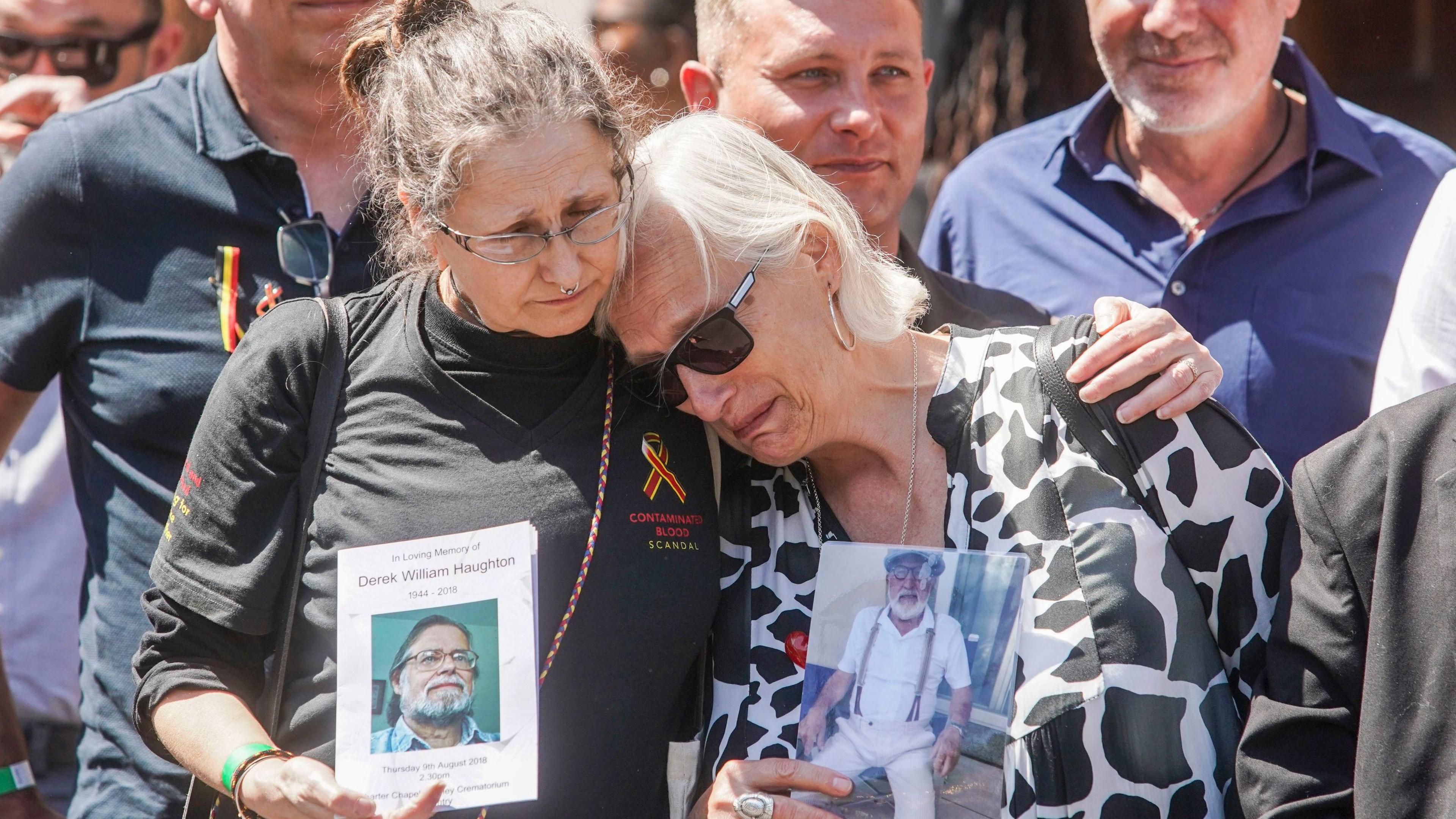
The Infected Blood Inquiry report was published in London in May
Local faces were among the thousands who gathered to hear inquiry chair Sir Brian Langstaff conclude that doctors' bodies, the NHS, and governments had "repeatedly" failed victims.
There were apologies from the Belfast Health Trust and the Northern Ireland Blood Transfusion Service (NIBTS).
Conan McIlwrath from County Antrim said there was a lot more beyond the report's words - after all "you don't use the word failure 190 times for nothing".
UK Covid-19 Inquiry
In April, the UK Covid-19 Inquiry sitting in Belfast heard devastating evidence of multiple failings across several NI Executive departments.
We learned that "political dysfunction" hampered the roll-out and compliance of some Covid-19 policies, which counsel to the inquiry said had a "direct impact on cases and fatalities".
We heard that "older people were left horribly exposed" and that the Public Health Agency "did not react with speed to the severity of what was unfolding".
Former Health Minister Robin Swann said the penny dropped for him on 10 March 2020 about the "grave position" Northern Ireland had found itself in.
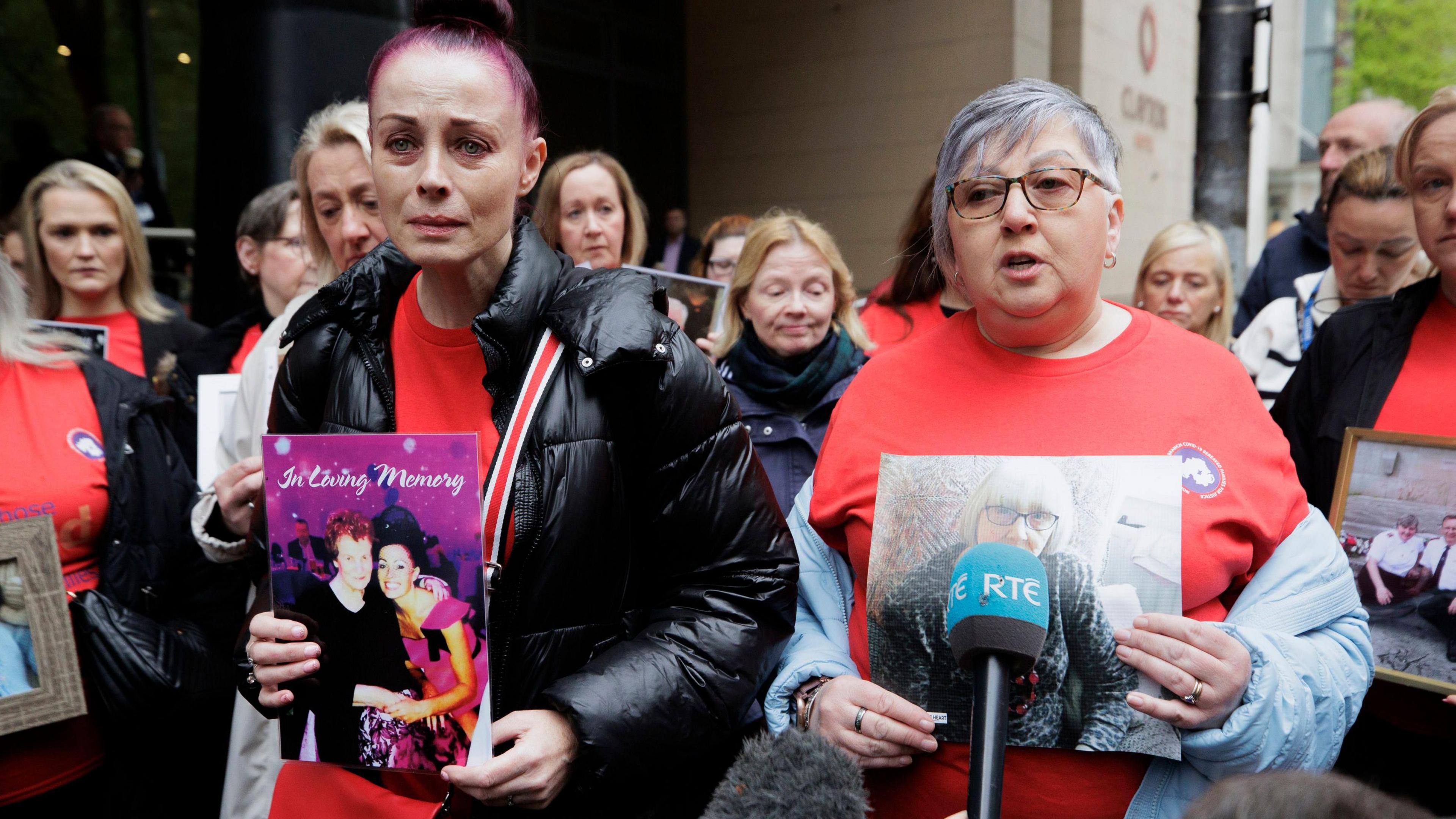
Families bereaved through Covid gave heart-wrenching testimony in Belfast
It would not be a Northern Ireland end of year review without mention of a new Executive.
In February, Robin Swann returned as health minister, but becoming an MP in July triggered his exit and Mike Nesbitt's appointment as his successor.
There was a sprinkling of positivity when - in what felt like a new direction - the new health minister made his first speech in the job in a community centre for vulnerable adults.
On paper, it marked a shift of emphasis toward tackling health inequalities and greater spend on community care.
However, transformation requires funding and much wrangling followed - culminating in the minister rejecting the November monitoring round worth £350m to his department.
He said it was still £100m short of what his department needed to settle health's pay dispute.
Come December, the Department of Health (DoH) received £8.8bn in the Stormont budget, with Nesbitt describing it as a "very challenging allocation" but adding that he was accepting the challenge.
Earlier in the month, the minister published his three-year plan which according to the DoH would require executive support and funding if targets were to be met.
There was detailed scrutiny on a range of issues by Stormont's health committee, with a major focus on Belfast's stalled new maternity hospital.
They said additional funding was hard to justify when the new maternity building continues to haemorrhage funds.
'Given an extra lifeline'
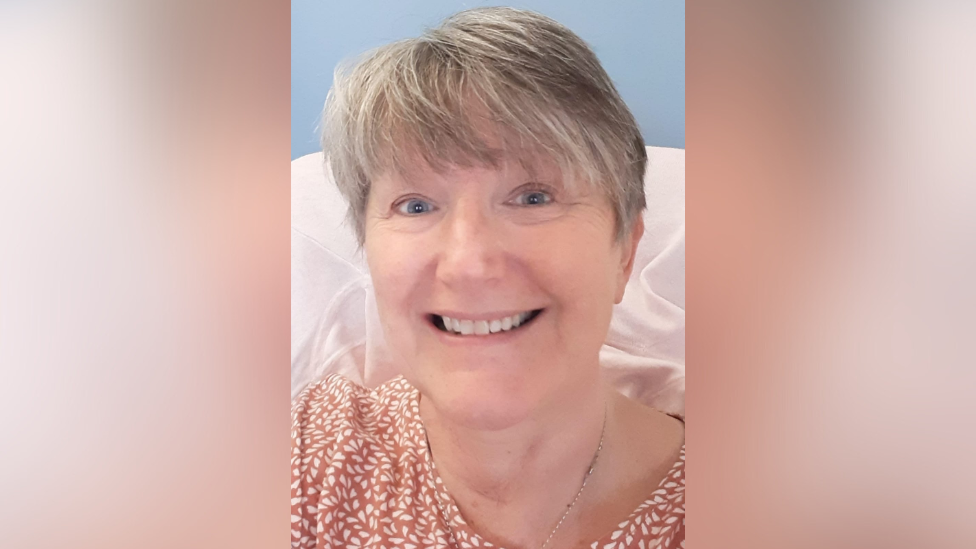
Christine Campbell has been able to use the new cancer treatment Avastin
It's rare that individual patients feature in consecutive end of year reviews, but ovarian cancer patient Christine Campbell deservedly is the exception.
Terminally ill, Christine has lived longer than doctors predicted, and this year was able to tell us that she had been given a lifeline thanks to a new treatment called Avastin.
In July 2023, she was told she had less than a year to live, but Christine is still here.
"I think now that I've been given this extra lifeline, or I feel it's an extra lifeline to me, that it's given me a little bit of hope," she said.
What a year for women's voices highlighting the need for change in women's health care.
There was a call for women's health hubs and another for a women's health strategy.
Cervical smear review
"Ladies with Letters" put a human face to all that went wrong in the Southern Heath Trust over the cervical smear scandal.
Reviews concluded that eight women whose smear tests were misread by screeners went on to develop cancer, and a further 11 women required treatment.
Two women died.
The Southern Trust apologised.
One of the women, Stella McLoughlin, told BBC News NI it was an "unforgiveable scandal".
Men's health
Men talked about their health too.
John Deery's heart stopped for six minutes while running the Belfast marathon – his story raised the importance of properly registered defibrillators.
Men were urged to attend abdominal aortic aneurysms (AAA) screening after Michael Hughes told us about his "dangerously large" aneurysm.
But it was Aaron Watson's cheeky message for men to "get to know their balls" and prostate that brought a smile to the Talking Balls Campaign.
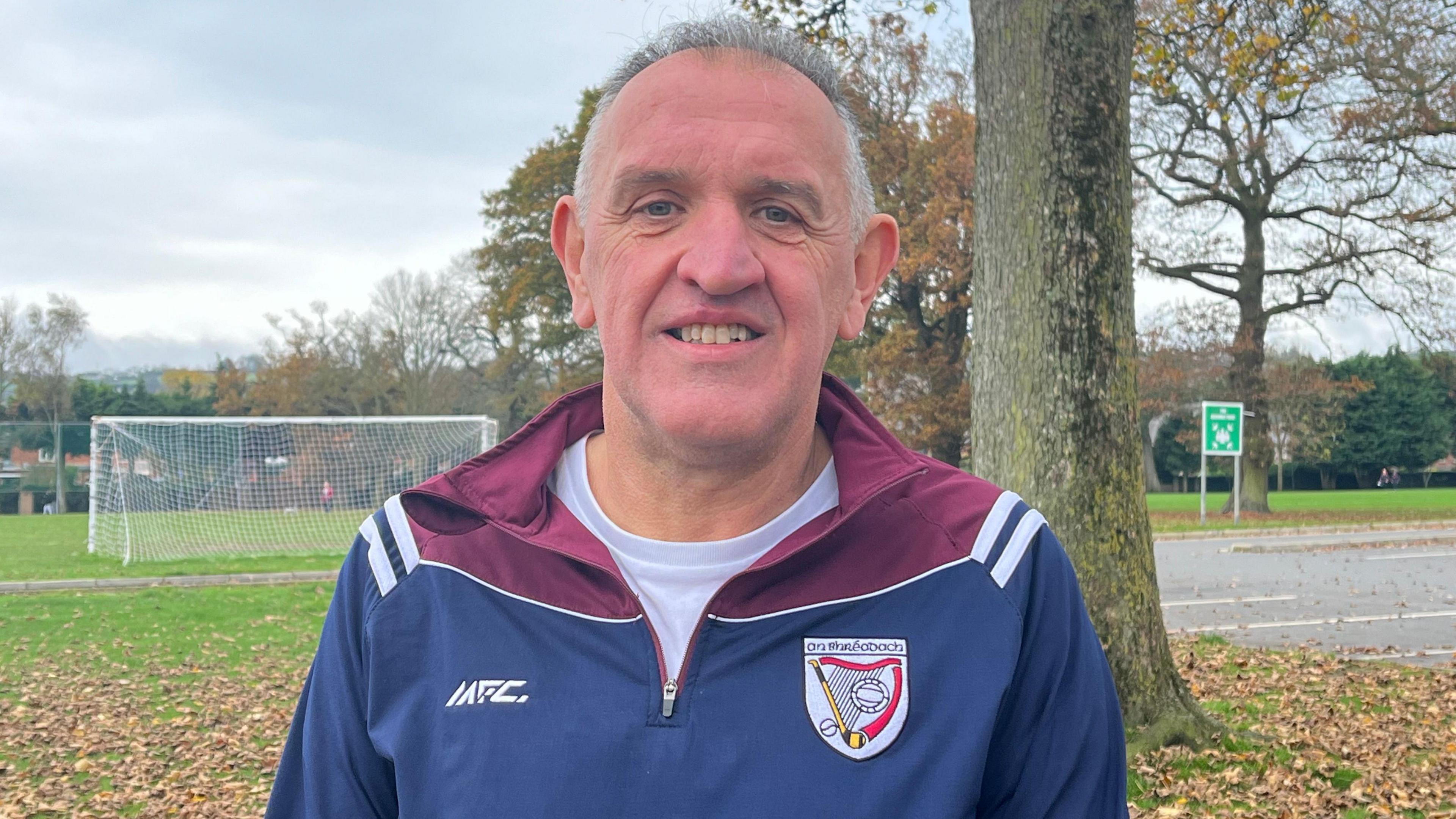
John Deery's heart stopped for six minutes during the Belfast marathon
Like most years, we end this one looking forward.
Perhaps the biggest conundrum has been the challenge of keeping staff on board.
A deal was reached between the DoH and most of the unions on a pay deal.
The question is, how an annual wrangle over healthcare pay can be avoided in the future.
- Published17 December 2024
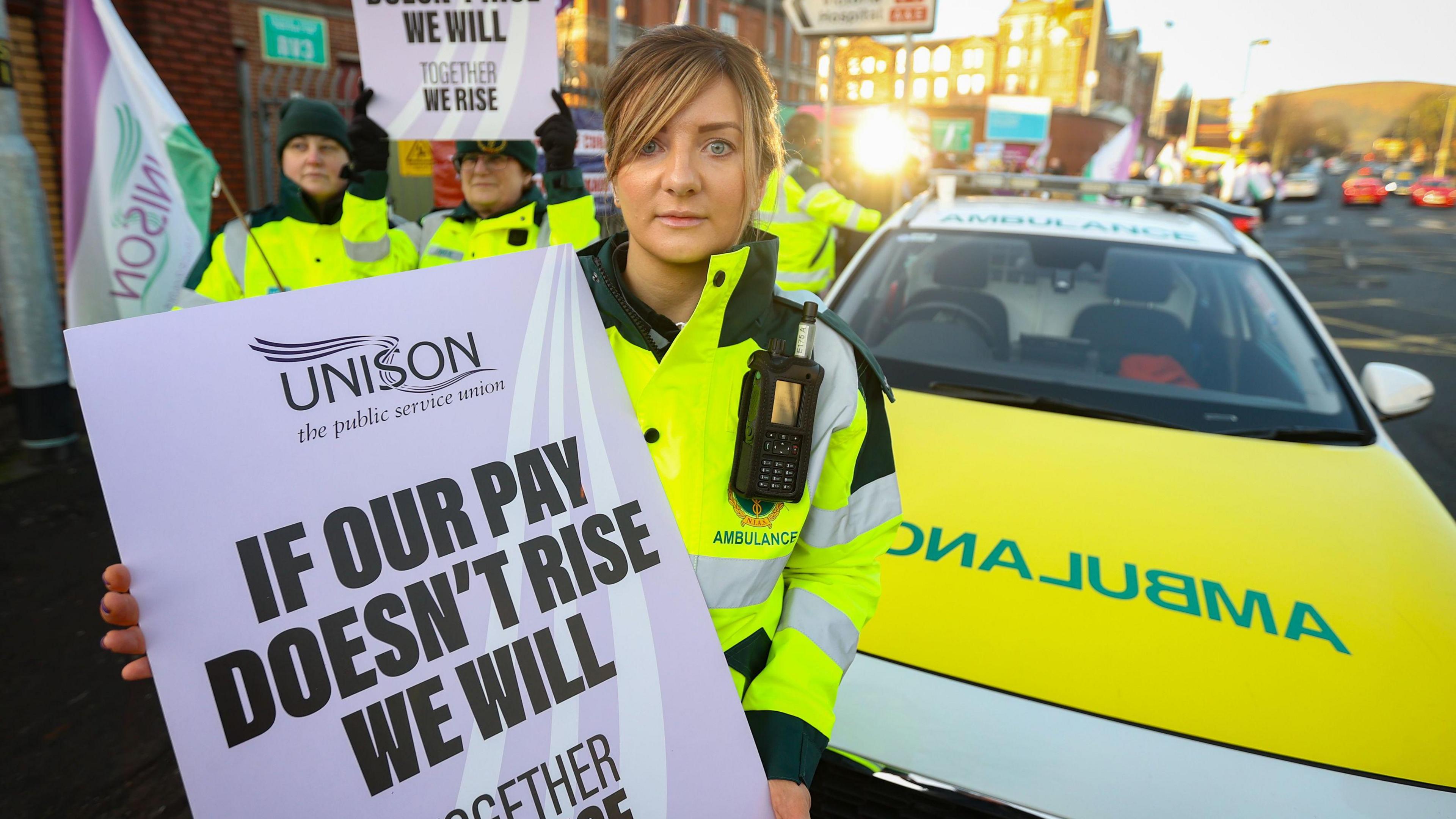
- Published19 December 2024
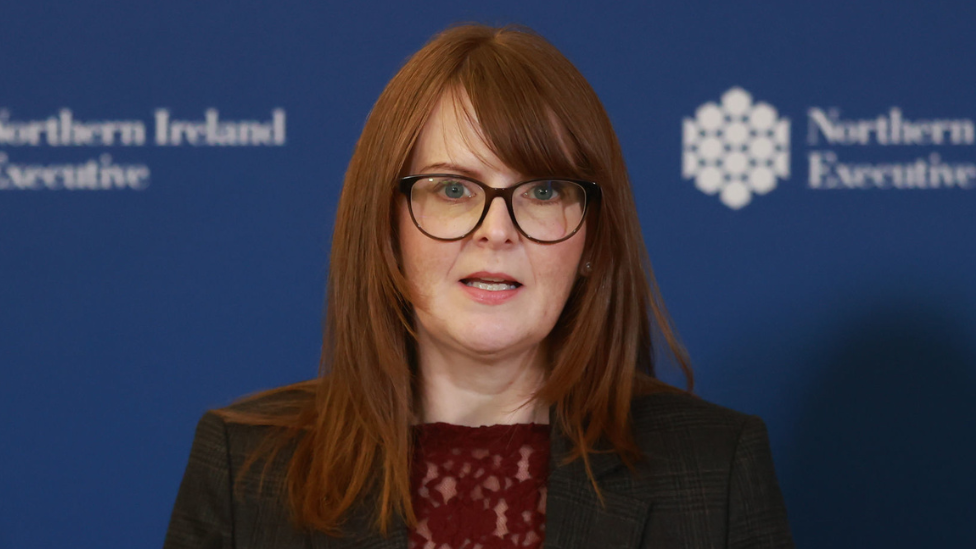
- Published11 December 2024

- Published7 November 2024
